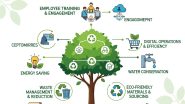Soft skills are personal attributes that enable individuals to interact effectively and harmoniously with others in the workplace and other areas of life. They are often referred to as interpersonal or people skills, and they complement an individual's technical or hard skills.
Soft skills include a range of abilities, such as communication, teamwork, problem-solving, leadership, time management, adaptability, emotional intelligence, and networking. These skills are essential for success in any job or career, as they help individuals work effectively with others, build strong relationships, and navigate workplace challenges.
How to develop strong soft skills
Developing strong soft skills is essential for fast-tracking your career. Here are some soft skills that can help you excel in your career:
- Communication:
Good communication skills are essential for success in any job. Being able to communicate clearly, both verbally and in writing, will help you convey your ideas effectively and build strong relationships with colleagues and clients.
- Leadership:
Being a good leader means being able to inspire and motivate others, delegate tasks effectively, and provide constructive feedback. Strong leadership skills can help you stand out in your career and can help you advance to higher positions.
- Time management:
Effective time management is crucial for success in any career. Being able to prioritize tasks, set realistic deadlines, and manage your workload efficiently will help you be more productive and achieve your goals more quickly.
- Adaptability:
In today's fast-paced work environment, it's essential to be adaptable and able to work well under pressure. Being flexible, open to change, and able to pivot quickly when needed can help you excel in your career.
- Problem-solving:
The ability to identify problems, analyze data, and develop practical solutions is a valuable skill in any job. Being a good problem-solver can help you stand out in your career and can lead to opportunities for advancement.
- Emotional intelligence:
Emotional intelligence is the ability to recognize and manage your own emotions, as well as those of others. Having strong emotional intelligence can help you build stronger relationships, work effectively in teams, and navigate workplace conflicts more effectively.
- Networking:
Building a strong professional network can help you create more opportunities for your career. Having the ability to build relationships, make connections, and maintain those relationships over time can help you access new job opportunities and advance in your career.
By developing these soft skills, you can position yourself for success in your career and fast-track your way to the top. Unlike hard skills, which are often specific to a particular job or industry, soft skills are transferable and can be applied in a variety of settings. Employers look for candidates with strong soft skills, as they are often indicative of a person's ability to work well with others, communicate effectively, and adapt to changing circumstances.
You can tell us your thoughts and suggestions about this article by commenting below. You can tell us your thoughts and suggestions about this article by commenting below. To learn more about such skills and in depth analysis, you should register for this free Webinar by Dr. Vivek Bindra right now.
Register at ANYBODY CAN DEFINITELY EARN.





















